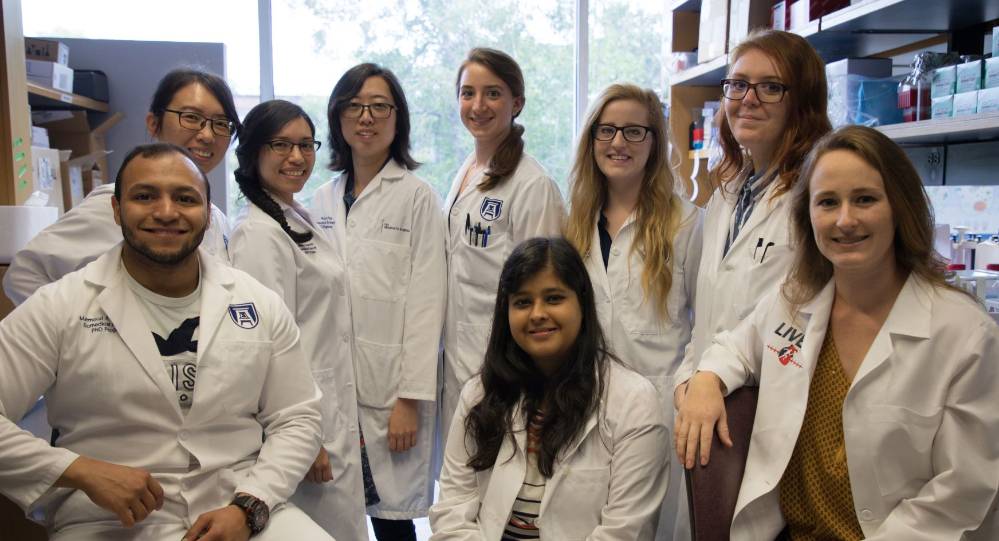
First Row (sitting): Mahmoud Abdelbary, Shinjini Chowdhury, Casey Derella
Back Row (standing): Yanna Tian, Lindsey Ramirez, Yue Pan, Elinor Mannon, Sarah Ray, Kasey Belanger
Not Pictured: Olufunke Arishe, Alec Davila, Vanessa Dela Justina
Physiology Graduate Student Achievement Former Physiology Graduate Students Virendra B. Mahesh Lectureship
“The Physiology Department is the best starting place I could ask for as a graduate student. The faculty are always there for each other and willing to help by all possible means, to hone the skills and advance the research interests of all physiology trainees. The main goal of the physiology program is to nurture a trustworthy and reliable future physiologist, not just produce a degree holder. Trainees learn, not only how to develop a good research project, but also how to survive a highly competitive environment."
- Mahmoud Abdelbary
Physiology Graduate Student
Department of Physiology
Health Sciences Campus
Interdisciplinary Research Center
1120 15th St.,
CA 3126
Augusta, GA 30912
706-721-7741
706-721-7299
The Department of Physiology trains graduate students under the auspices of the Medical College of Georgia College of Graduate Studies leading to a PhD degree in Biomedical Science. Through the emphasis on 3 core areas (Cardiovascular, Endocrine, Neuroscience), the department houses several faculty with complementary interests and successful collaborations.
We emphasize an integrative approach to physiology, with expertise in molecular, cellular, and organismal research methods. Our students attain a solid education in the facts, concepts and trends of their field, acquire excellent training in state-of-the-art scientific methods and learn to use sophisticated scientific instrumentation. Students participate in an active journal club and seminar program featuring prominent guest speakers. Students are encouraged to attend regional and national meetings where they present their research and interact with leading scientists in their field. In addition, students are encouraged to apply for extramural funding, and Physiology students have a high success rate in securing predoctoral grants.
Coursework includes Biomedical Core Curriculum in the first year and upper level courses subsequently. Courses include: Current Trends in Endocrinology I and II, Teaching Practicum in Medical Physiology I and II, Advanced Study of Physiology, Current Trends in Physiology, Advanced Renal Physiology, Medical Endocrine and Reproductive Physiology, Medical Cardiovascular Physiology, Medical Renal Physiology, and Investigation of a Problem and Research (this course culminates in the preparation of a PhD dissertation or MS thesis). Students may take upper level courses in Neuroscience, Cardiovascular Biology, Endocrinology or in other areas of interest within the School of Graduate Studies. The Department of Physiology also offers its own upper level courses. In addition, students must complete a course in Grant Writing, Research Misconduct, and attend the Physiology Seminar Series and Course.
Students in the Biomedical Science Program perform three 3-week mini-rotations in laboratories of their choice during the fall semester. In the spring semester students perform two 7-week rotations (in the same or different labs) culminating in presentation of a research project. Students joining laboratories of Physiology Faculty are admitted into the Physiology program.
PHYSIOLOGY NEWS IN JAGWIRE PHD PROGRAM BROCHURE About the Department Department Facilities MEET OUR FACULTY